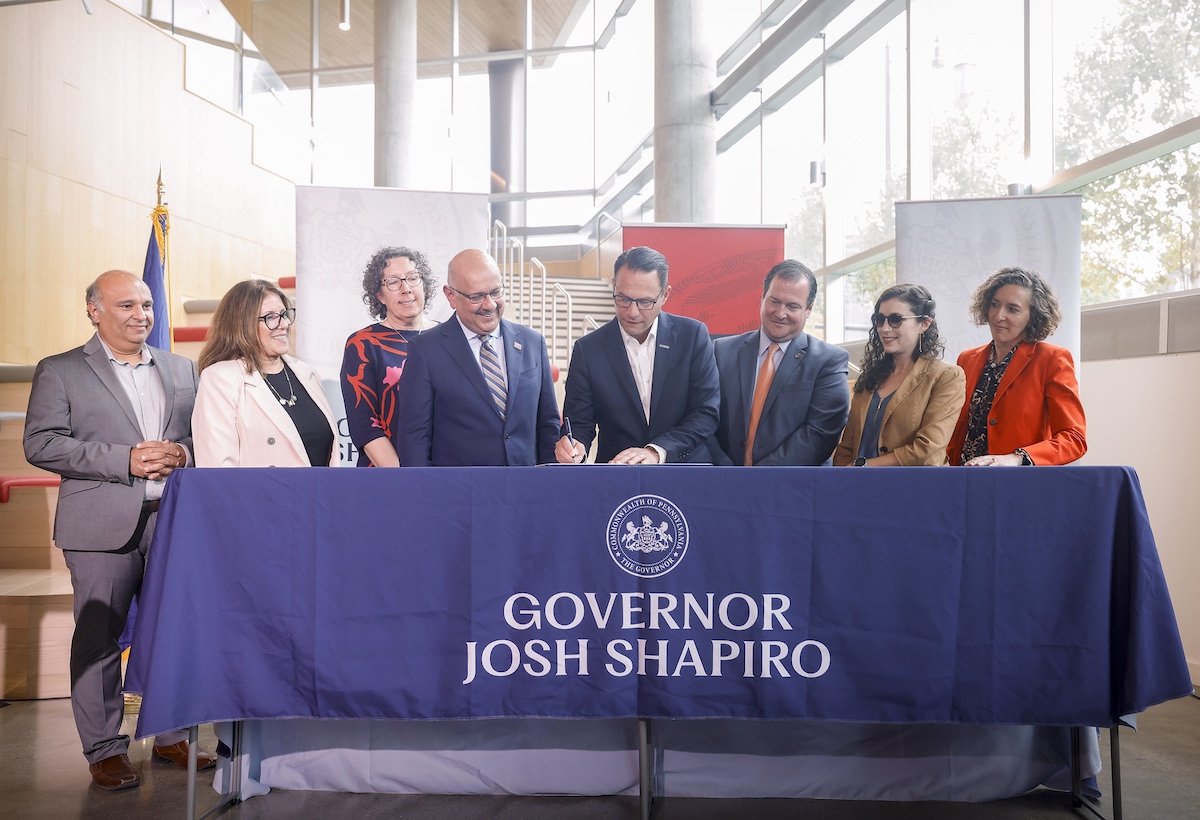Gov. Josh Shapiro announced Tuesday that his administration is partnering with OpenAI on a new generative artificial intelligence pilot program that will give state employees access to OpenAI tools with enhanced security and privacy features, making Pennsylvania the first state to partner with OpenAI in the process.
The Shapiro administration said the pilot program, which will make OpenAI’s ChatGPT Enterprise available to state employees in the Office of Administration, will help state employees determine how AI tools can be incorporated into government operations.
“I believe Pennsylvania can be a national leader in the safe and responsible use of generative AI in our government operations — and this first-in-the-nation pilot with OpenAI will help us safely and securely learn from and use this important technology to serve Pennsylvanians and empower our workforce,” Shapiro said in a statement.
ChatGPT Enterprise, which was launched by Open AI in August 2023, gives users access to the latest iteration of OpenAI’s ChatGPT generative AI tool, GPT-4, which generates text and dialogue based on prompts entered by the user. ChatGPT Enterprise builds on the publicly available version of the tool by offering expanded security and privacy measures — along with enhanced data analysis capabilities and unlimited higher-speed access to GPT-4 — for companies and government entities that sign up for ChatGPT Enterprise.
According to a press release from the administration, the pilot program will begin this month and will initially be limited to employees in the Office of Administration, who will use the AI tools to create and edit copy, update policy language, draft job descriptions and help employees write code. After the Office of Administration provides initial feedback on the program, an additional 100 licenses will be provided to employees in other agencies.
OpenAI has commanded attention in the AI space since it released ChatGPT in November 2022, and the rollout of AI products has generated both excitement and anxiety across the U.S.
According to a 2023 survey from the Pew Research Center, 52% of Americans said they are more concerned than excited about the use of artificial intelligence in daily life, compared to 36% who said they were equally excited and concerned — and 10% who said they were more excited than concerned about AI.
Shapiro’s administration touted the pilot program as the state’s “first-ever use of generative AI tools for state government employees,” and said the program will help inform how AI is used in other facets of state government.
“This pilot program is part of our commitment to embrace generative AI in a way that empowers our workforce to excel,” Commonwealth Chief Information Officer Amaya Capellán, who spoke with City & State on threats in the IT space last year, said in a statement. “It is a critical first step in the Shapiro Administration’s goal to be a proactive leader in the adoption of generative AI to improve how we operate and deliver services to Pennsylvanians.”
The Office of Administration is also collaborating with generative AI experts and researchers from the Carnegie Mellon University Block Center for Technology and Society throughout the pilot.
“The Block Center for Society and Technology at Carnegie Mellon University is honored and eager to help guide the Commonwealth of Pennsylvania in the adaptation and responsible use of emerging Artificial Intelligence tools for the benefit of all Pennsylvanians,” Steve Wray, executive director of the Block Center, said in a statement.
This move isn’t the first by the Shapiro administration to address the growing technology and its potential security risks. Shapiro signed an executive order in September to establish standards and a governance framework for generative artificial intelligence use by state agencies and employees. This included establishing an AI governing board along with establishing core values for generative AI use, among them accuracy, employee empowerment and equity.
“We can’t ignore new technology — we have to educate ourselves and be proactive to minimize the risks and maximize the benefits of innovation and that’s the approach my administration is taking here in Pennsylvania,” Shapiro said.
Sam Altman, the OpenAI CEO who exited, and later rejoined, the company in 2023, said Tuesday that the partnership between Pennsylvania and OpenAI is a groundbreaking one.
“This initiative showcases Pennsylvania’s commitment to innovation, led by the strength of the state’s diverse communities and dynamic economy,” Altman said in a statement. “Our collaboration with Governor Shapiro and the Pennsylvania team will provide valuable insights into how AI tools can responsibly enhance state services.”







